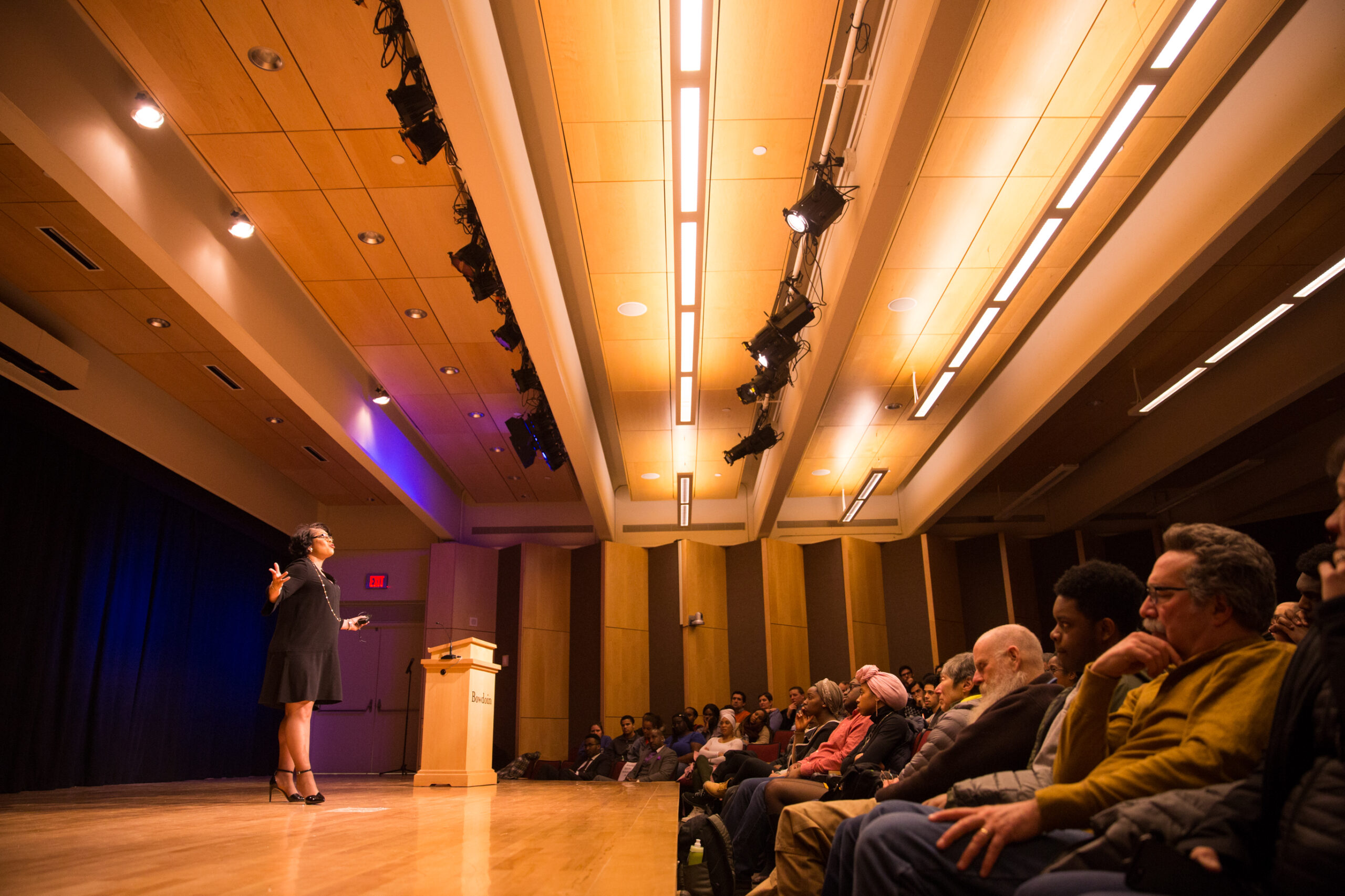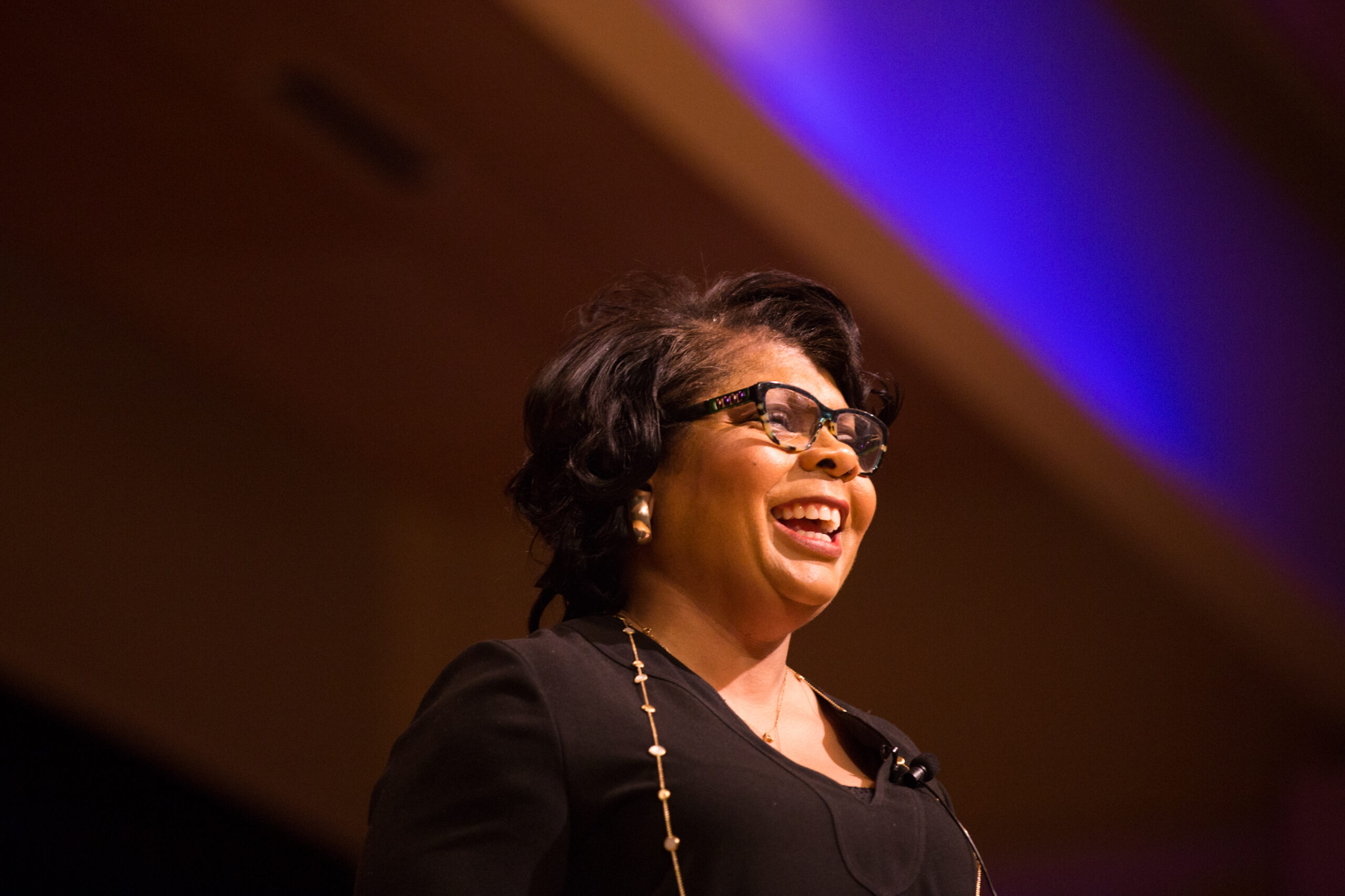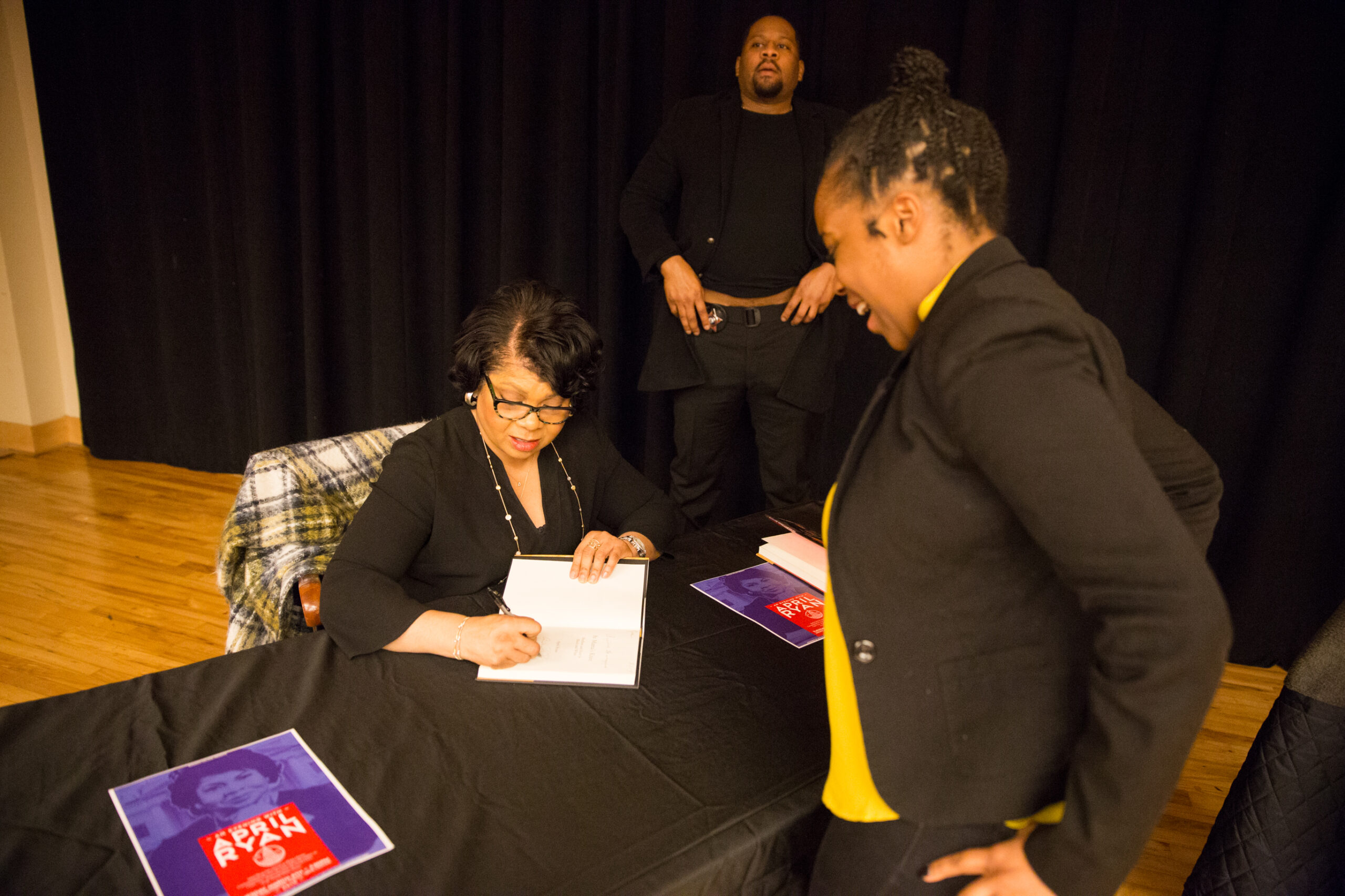‘Under Fire’ in a ‘more perfect union’: April Ryan talks White House reporting
March 9, 2019
 Ann Basu
Ann Basu
In front of a packed audience of students and community members in Kresge Auditorium, Ryan spoke about her experience covering the White House and the long quest for a “more perfect union.” The event, sponsored by the African-American Society, was the the final program of Black History Month and Beyond and the first of Herstory, a celebration of Women’s History Month.
Ryan, a White House correspondent for 22 years, has been under fire for the last two.

In the clip played before Ryan’s lecture, President Donald Trump called her a “loser” and threatened to remove her press pass. Later during the briefing, he yelled at her to “sit down” when she tried to ask a question.
Moments like these inspired Ryan’s latest book, titled, “Under Fire: Reporting from the Front Lines of the Trump White House.” Despite the turmoil she has endured in the last few years, Ryan said feels unphased to ask the questions that need to be asked—if she does not ask these questions, no one will.
Ryan also discussed her background as an African American woman from Baltimore in the context of the predominately white industry of politics and political reporting. While her field has always lacked diversity, she felt something change in recent years, saying she came under attack not because of her job but because she is a woman of color.
Before her lecture, Ryan participated in a private, informal discussion at the Multicultural Center for Student Life with a handful of Bowdoin women of color. She discussed the importance of female empowerment and service, with respect to both her duties and the recent midterm elections.
“Power means service, and that’s something we forget,” Ryan said. “Elected official are supposed to serve you, not themselves.”
She noted that with her job comes “collateral damage,” but she is not planning to leave her work, despite any agitation—such as death threats or workplace harassment—that may arise.
“If I walk away, I walk away and drop the ball for all of you,” Ryan said. “Because you are all women of color too. It’s not about me, it’s about the next generation. It’s about the fight for freedom of information, freedom of the press.”
 Ann Basu
Ann BasuA theme of Ryan’s talk drew from the Preamble to the U.S. Constitution.
“We the people are still forming a perfect union,” she said.
Ryan argued that a perfect union would represent its people and allow the country to adapt. After an audience member called Americans ignorant for electing the current administration, Ryan pushed back on this notion, arguing that the idea of taking a chance on something, and then trying something else if it doesn’t work, is normal in American culture—a social experience that helps us learn and improve our nation.
Still, she added that this union will only be perfect with transparency and the ability to ask questions of authority.
Despite the heavy topics of the lecture, laughter and comfort were palpable in Kresge, as students connected with Ryan’s grievances, and all laughed at her quip about “the 5,000 people that are running for president on the Democratic side.”
Ryan had advice for students, too, born out of her experience of asking questions when no one called on her.
“If you don’t have a seat at the table, bring a folding chair.”

Comments
Before submitting a comment, please review our comment policy. Some key points from the policy: